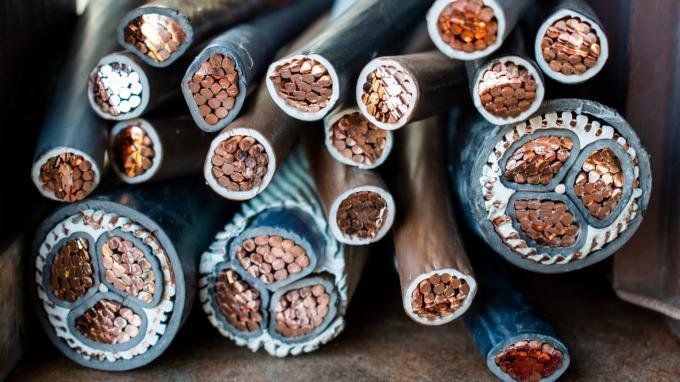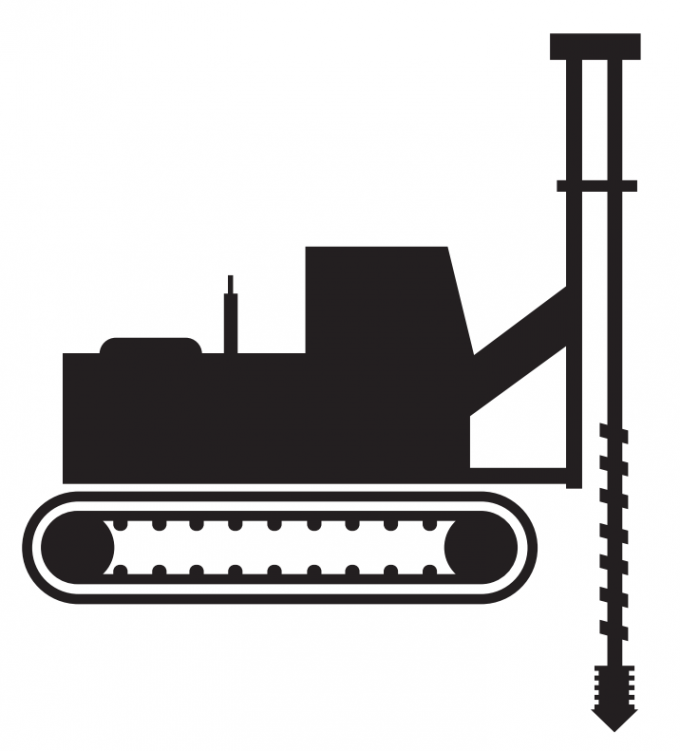Moisture Proof LSZH Cable: Low Smoke Low Halogen for Robust Construction
In today’s fast-paced world of industrial construction and large-scale infrastructure projects, safety, durability, and sustainability are paramount. A critical element that often goes unnoticed is the type of cable used in construction.
In environments exposed to moisture, heat, and other harsh conditions, a moisture-proof LSZH cable is the perfect solution to ensure safe and reliable performance.

Moisture-proof LSZH cables, also referred to as low smoke halogen-free cables, are specifically designed for use in environments where high humidity and potential water exposure are concerns.
They not only resist moisture but also emit low smoke and no toxic halogens in the event of a fire, making them an environmentally friendly and safe option for robust construction.
In this article, we’ll explore why moisture-proof LSZH cables are crucial for heavy construction, their key benefits, and how they are used in various projects.
By the end of this guide, you'll understand how these cables provide superior performance in tough environments, protecting both infrastructure and human lives.
Why Choose Moisture-Proof LSZH Cables for Construction?
1. Moisture-Resistant Design for Durability
Construction projects, especially those involving outdoor environments or underground structures, require cables that can withstand harsh conditions, such as rain, humidity, or water infiltration.
Moisture-resistant cables, also known as waterproof LSZH cables, are designed with a special sheath that prevents water from penetrating, which prolongs their lifespan and reduces the risk of electrical failures.
| Feature |
Description |
| Moisture Resistance |
Protects against water ingress, ensuring long-term reliability |
| Suitable for |
Coastal areas, underground facilities, and high-humidity environments |
| Material |
Special non-toxic LSZH compounds prevent cable degradation |
2. Low Smoke and Halogen-Free for Fire Safety
In the event of a fire, traditional cables made of materials containing halogens (like chlorine and fluorine) release toxic gases, which pose severe health risks and environmental hazards.
LSZH cables, or low smoke halogen-free cables, are specifically engineered to limit the emission of harmful gases and smoke.
This makes them an ideal choice for construction in enclosed areas such as tunnels, subways, power plants, and high-rise buildings, where fire safety regulations are stringent.
| Feature |
Description |
| Smoke Production |
Minimal smoke output, improving visibility during a fire |
| Halogen-Free |
No harmful gases like chlorine or fluorine are emitted |
| Best Use |
Enclosed environments and public buildings with strict fire codes |
3. Eco-Friendly and Sustainable
In addition to their excellent fire-safety features, LSZH cables are a non-toxic, environmentally friendly option. Unlike conventional cables that release harmful chemicals, low smoke halogen-free cables contribute to cleaner air quality and reduce environmental damage during both use and disposal.
This eco-friendly feature is increasingly important for green building projects, which prioritize sustainability.
| Feature |
Description |
| Environmentally Friendly |
LSZH materials are free of harmful halogens |
| Recyclability |
Can be recycled, contributing to lower environmental impact |
| Compliance |
Meets environmental standards for sustainable construction |
Key Applications of Moisture-Proof LSZH Cables
1. Coastal Construction and Marine Projects
Coastal regions face high humidity, saltwater exposure, and temperature fluctuations. The water-resistant nature of moisture-proof LSZH cables makes them the go-to solution for coastal buildings and marine applications.
Their durable insulation provides protection against the corrosive effects of saltwater and high humidity, ensuring uninterrupted power supply and control signals.
| Application |
Description |
| Coastal Structures |
Moisture-proof LSZH cables prevent corrosion from saltwater exposure |
| Marine Vessels |
Provides reliable wiring for offshore platforms and ships |
2. Underground and Tunneling Projects
Underground environments are notoriously damp, with a high risk of water intrusion. Moisture-proof LSZH cables ensure that electrical systems remain operational despite exposure to moisture.
Additionally, their low smoke and halogen-free properties are crucial for tunnels and subways where fire risks are high, and evacuation visibility must be maintained.
| Application |
Description |
| Subways and Tunnels |
Provides reliable power and data transmission in enclosed spaces |
| Underground Facilities |
Resists moisture in damp and high-humidity environments |
3. Industrial and Infrastructure Projects
For robust industrial construction such as power plants, manufacturing facilities, and large infrastructure, the need for reliable, durable, and safe cables is critical.
Moisture-proof LSZH cables provide the perfect balance between durability, fire safety, and environmental responsibility.
| Application |
Description |
| Power Plants |
Fire-safe, moisture-proof cables ensure uninterrupted power delivery |
| Industrial Manufacturing |
Suitable for heavy-duty environments exposed to high temperatures and moisture |
Performance Benefits of Moisture-Proof LSZH Cables
Let’s break down the key advantages of moisture-proof LSZH cables and how they contribute to superior performance in construction and industrial settings:
| Feature |
Benefit |
| Water-Resistant Sheath |
Protects against water ingress, increasing cable life expectancy |
| Flame Retardant |
Limits the spread of fire, enhancing building safety |
| Low Smoke Emission |
Improves visibility in case of fire, aiding in safer evacuations |
| Halogen-Free |
Non-toxic emissions ensure safer air quality in enclosed environments |
| Durability |
Withstands harsh environmental conditions, reducing maintenance costs |
| Environmentally Friendly |
Contributes to greener construction projects with reduced environmental impact |
How to Choose the Right Moisture-Proof LSZH Cable for Your Project
When selecting a moisture-proof LSZH cable for robust construction or infrastructure projects, several factors should be considered to ensure that the right cable is chosen for the job. Here are some tips:
1. Identify the Environment
Consider the level of moisture exposure, whether the cable will be used in underground tunnels, coastal areas, or industrial plants. Choose a water-resistant LSZH cable that meets the specific environmental demands.
2. Evaluate Fire Safety Requirements
Different projects may have varying fire safety codes. Buildings with large public footfalls or underground spaces like tunnels and subways require low smoke halogen-free cables to ensure compliance with strict fire safety standards.
3. Check Durability Ratings
If your project is in an environment with extreme temperatures or harsh conditions, choose a durable LSZH cable that offers superior performance in these settings.
High-temperature and flame-retardant features will ensure long-term reliability.
| Selection Criteria |
Details |
| Environment |
Coastal, underground, industrial, or heavy-duty construction |
| Fire Safety Standards |
Choose LSZH cables that meet or exceed local and international standards |
| Durability Requirements |
Ensure the cable is rated for high temperatures and moisture exposure |
Case Study: Successful Use of Moisture-Proof LSZH Cables in Coastal Construction
A large coastal development project required cables that could withstand high humidity, saltwater exposure, and frequent temperature changes. Moisture-proof LSZH cables were chosen due to their excellent moisture resistance and non-toxic properties.
The result was a safer, more durable electrical system that complied with the local fire safety regulations, while also contributing to the project's sustainability goals.
Conclusion: Investing in Safety and Sustainability with Moisture-Proof LSZH Cables
Choosing the right cables for your construction or infrastructure project is essential for ensuring long-term safety, reliability, and sustainability. Moisture-proof LSZH cables, with their water-resistant, low smoke halogen-free properties, offer the ideal solution for environments exposed to moisture or where fire safety is paramount.

Whether you are working on a heavy construction project in an industrial setting, a marine application, or a tunnel, these cables deliver the performance and safety needed to protect both people and the infrastructure.
By choosing moisture-resistant, environmentally friendly LSZH cables, you're not only investing in the safety of your project but also in the long-term sustainability of the environment.
For more information on selecting the right LSZH cable for your needs, or to inquire about custom solutions for construction, contact our team today. We offer a range of low smoke halogen-free options tailored to meet the specific requirements of any project.
This comprehensive guide provides you with the insights needed to make informed decisions on moisture-proof LSZH cables for your next robust construction project.



Note: This is just part of the standard parameters of our products. Please contact our Engineer if you need more. And the information contained within this webpage is for guidance only and is subject to change without notice or liability. All dimensions and specifications are nominal and are subject to normal manufacturing tolerances. All pictures shown are for illustration purposes only. The actual product may vary. All the information is provided in good faith and is believed to be correct at the time of publication.

